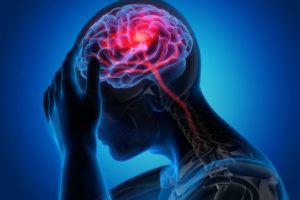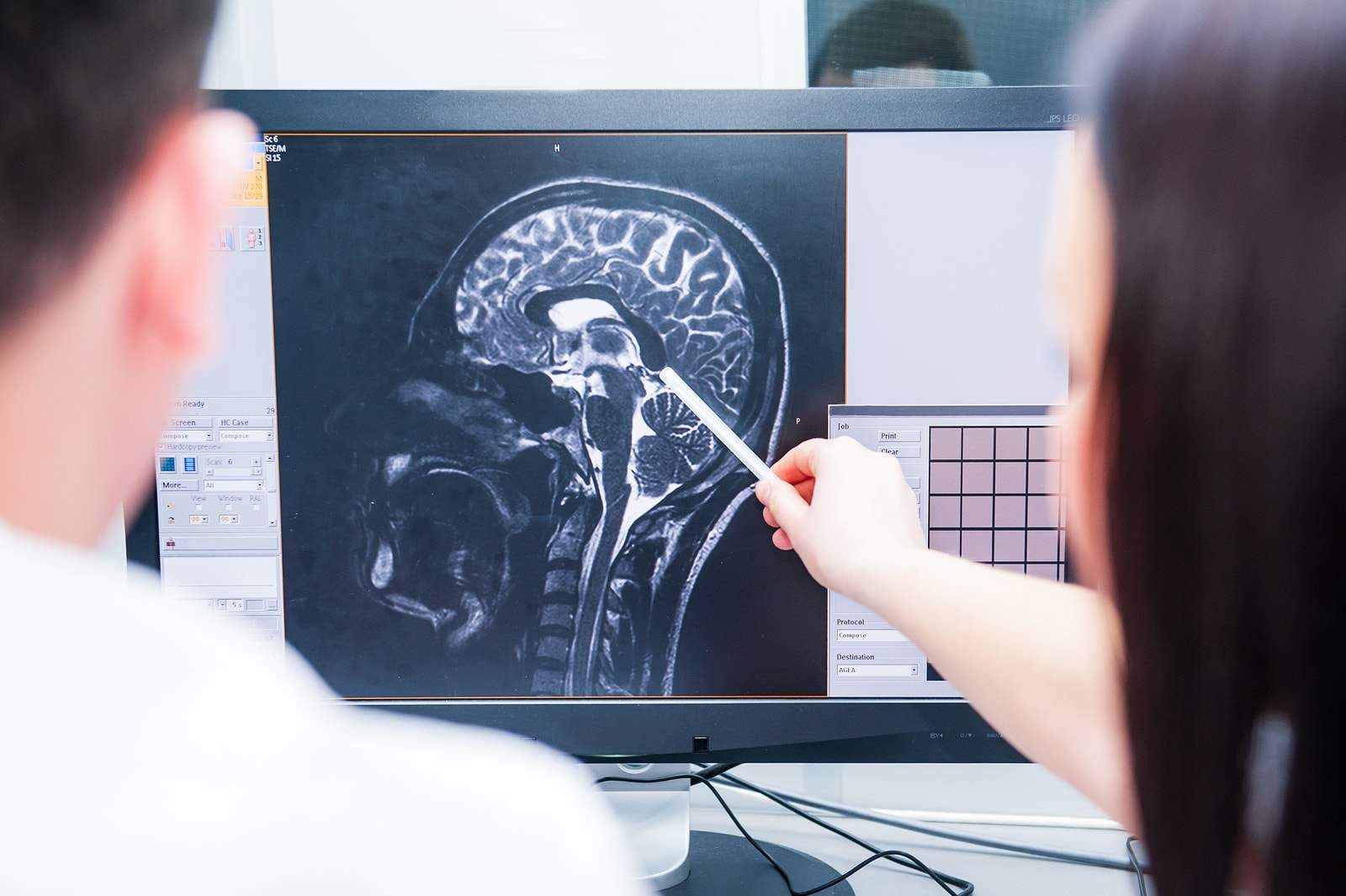Traumatic Brain Injuries by the Numbers
Traumatic brain injuries can wreak havoc on the patient’s life. TBIs may cause damaging complications: short-term memory loss, loss of long-term memories, struggles with focus and concentration, and even ongoing physical symptoms like headaches. Unfortunately, traumatic brain injury can occur whenever someone suffers head trauma.
According to the CDC, more than 64,000 people may die from traumatic brain injuries annually, and TBIs hospitalize about 223,000 people because of brain injuries.
Who Gets Brain Injuries?
 According to the CDC, people over 75 may prove more vulnerable to TBI-related injuries. People over 75 account for 32 percent of TBI hospitalizations and 28 percent of TBI-related deaths.
According to the CDC, people over 75 may prove more vulnerable to TBI-related injuries. People over 75 account for 32 percent of TBI hospitalizations and 28 percent of TBI-related deaths.
Males have a two-times greater likelihood of suffering TBI than females, perhaps because of their greater tendency to participate in potentially dangerous activities that may lead to a higher risk of brain injury.
Children may also prove more vulnerable to TBI. Children count for around 16,000 TBI hospitalizations each year.
However, anyone who suffers from head trauma may have a high risk of developing a traumatic brain injury.
The Science Behind Traumatic Brain Injuries
Traumatic brain injuries, as the name suggests, occur when the brain suffers excess trauma from a bump, blow, or jolt to the head or body. Traumatic brain injuries often occur due to closed-head injuries without penetrating force to the head, but penetrating objects can also cause severe injuries.
During a traumatic brain injury, the brain may strike the inside of the skull, causing swelling and damage to brain tissue. In some cases, that damage can cause internal bruising, torn tissues, or even bleeding in the brain. Symptoms of mild traumatic brain injury may cause short-term deficits, while severe traumatic brain injury can cause long-term damages that may impact the patient for the rest of their life. Prompt treatment for a traumatic brain injury can reduce those impacts and provide vitally-needed support for the patient, including occupational therapy interventions that help patients learn how to cope with their new limitations.
Symptoms of Mild TBI
Even mild traumatic brain injury can cause severe symptoms that can heavily impact the victim. Symptoms may seem mild, especially at first, but may become more frustrating as they progress. Mild TBI may cause symptoms of headache, nausea or vomiting, and dizziness immediately. Outside observers may notice that the patient slurs their words or has trouble finding the right words for a specific situation. TBI can also cause problems with dizziness and loss of balance.
Even a mild TBI can cause confusion or a “dazed” state. Patients may suffer from mood swings or emotional control problems, especially in the days immediately after the incident.
Mild TBI may mean an immediate loss of consciousness that lasts for a few seconds or a few minutes. However, some patients with mild TBI may never lose or may not remember losing consciousness, making it more challenging to deal with those symptoms and address them promptly.
Symptoms of Moderate to Severe TBI
Patients with more severe brain injuries generally lose consciousness. They may remain unconscious for several minutes or several hours. Moderate to severe TBI may show more immediate and long-term symptoms that linger long after the initial incident. Patients may note a steadily worsening or persistent headache, extreme nausea and vomiting, and a substantial loss of coordination.
After a severe TBI, patients may note convulsions and seizures, agitation, and considerable confusion, including difficulty remembering where they are or what happens around them. They may show signs of aggression, including fighting with people who try to help them after the incident. Furthermore, patients with severe TBI may have slurred speech or trouble staying awake.
Longer-term patients with moderate to severe TBI may show memory impairment, including short-term and long-term memory problems. They may have trouble focusing or concentrating on any task for more than a few minutes, including leisure tasks that they usually enjoy. Patients with severe TBI may also have difficulty with overall emotional control, showing signs of extreme mood swings.
Patients with moderate to severe TBI may have a long road to recovery and may require intervention from occupational therapists to help them learn how to cope with the impacts of those injuries. In some cases, patients with moderate to severe TBI may require full-time care since they may lack the decision-making capability to navigate everyday situations safely.
Common Causes of TBI
Falls
Around half of TBI hospitalizations, according to the CDC, occur because of falls. Falls may occur more frequently for older adults, who may have more trouble with balance in general, and may be more vulnerable to serious injury if they do fall. Falls can also include falls from heights, common for construction workers and others who may work in dangerous professions. Inadequate fall protections can raise the risk of devastating injury from a fall.
Slip and fall accidents can happen to anyone at any time. Often, falls occur due to:
- Poor maintenance on flooring, stairs, or handrails.
- Spills, especially in industrial settings. Spills can pose an immense danger to many site workers and visitors.
- Uneven flooring.
- Items left out on the floor, especially in stores. Vendors may often leave cords and other potentially dangerous items spread across pathways, raising the risk of a fall.
Motor Vehicle Crashes
Car accidents have a high risk of causing traumatic brain injuries. Car accidents often involve a great deal of force, and many people hit their heads during a car accident. In many cases, car accident victims don’t even know that they have an injury unless they are examined by a doctor. Hidden injuries from a car accident, especially a TBI, are quite common so you should always seek medical attention.
Motorcycle accidents may have a greater risk of causing traumatic brain injury. As many as 7 percent of motorcycle riders treated in a hospital after an accident suffers from TBI. Helmet use can substantially reduce the risk of suffering a TBI in a devastating motorcycle accident: Unhelmeted riders who visit the hospital after a motorcycle accident may have as much as a 9 percent chance of TBI. Wearing a helmet may reduce the risk of devastating TBI by as much as 67 percent and may further decrease the severity of a brain injury when one does occur.
Severe car and truck accidents may substantially increase the risk of TBI since the body experiences much more force in those collisions.
Construction Accidents
Construction sites offer several opportunities for potential brain injuries. Construction workers often work at heights, and many objects can fall on construction sites, injuring workers on the ground. Around 25 percent of construction fatalities occur because of traumatic brain injuries.
On construction sites, according to the CDC, workers in small construction companies have a 2.5 times greater chance of dying of a TBI than those in large construction companies, perhaps because large construction companies often have better overall resources that they can devote to safety precautions.
Falls, including falls from roofs, ladders, and scaffolding, lead to more than 50 percent of work-related TBIs each year.
Assaults
Violent crimes often result in TBIs. Many attackers may bounce their victims off the ground, raising the risk of TBIs. Brain injuries also commonly result from domestic violence. In the case of domestic violence, adult women are more likely to present with TBI than other victims.
Infants also have a high risk of suffering a brain injury due to violence in the home. Shaken baby syndrome, for example, often occurs when an adult caregiver shakes an infant, leading to severe brain damage. In some cases, shaken baby syndrome can cause permanent disability or death.
Sporting Events
Many popular sporting events have a high risk of traumatic brain injury. Around 173,000 annual brain injuries occur in children and adolescents due to sporting events. Around 45 percent of brain injury-related injuries in children each year occur as a direct result of sporting events.
Most childhood sporting events involve careful protections designed to help protect the child, including helmets to help protect against head injury. In some cases, however, children may still suffer devastating injuries while participating in sports.
Cycling injuries account for the most head injuries each year, followed by football, baseball and softball, and basketball.
Defective Playground Equipment
For children under 14, playground equipment-related head injuries are the most common source of head injuries. Often, playground equipment encourages children to climb to considerable heights. They can suffer severe injuries when they fall or jump from those heights. Many playgrounds also lack adequate safety railings and precautions or have areas where children can climb despite the possible dangers of falling, which may increase the risk of brain injuries and other serious injuries.
Preventing TBI
In some cases, people can do little to prevent traumatic brain injury. For example, in cases like car accidents, patients may not be able to predict a coming accident. However, several steps can help reduce the risk of traumatic brain injury.
Wear Appropriate Safety Gear
Whether participating in sporting events or working on a construction site, you may find that wearing appropriate safety gear can significantly reduce the risk of TBI. Around 84 percent of workers who suffered head injuries did not have adequate head protection at the time of the incident.
That means:
- Wearing a helmet while riding a bicycle or motorcycle
- Wearing a hard hat on construction sites
- Wearing proper safety gear, including appropriate helmets, when participating in sporting events
Make sure that you choose the right safety gear for your needs. The headgear should fit properly and have a high safety rating according to the appropriate certifying organization. (For example, motorcycle helmets should have a high level of DOT safety certification.)
Avoid Further Head Trauma After an Accident
If you do suffer head trauma in an accident, do not continue to participate in activities that could lead to further head trauma. A second blow to the head could take a head injury from minor to severe in the blink of an eye, leaving you with many longer-lasting symptoms.
Do not jump back into a sporting event or go right back out on a construction site after suffering a blow to the head, especially one that results in any confusion or disorientation. Talk to your doctor about how long you may need to avoid those activities to reduce the risk of further TBI.
See a Doctor
If you suffer a blow to the head, you should seek medical attention immediately. Prompt medical attention can make diagnosing and treating TBI symptoms easier. Ultimately, seeing a doctor as soon after your accident as possible can help protect you from further danger and ensure that you get the medical assistance you need. A doctor can minimize the impact of your TBI and offer you coping mechanisms to deal with your accident and injuries.

Did You Suffer a TBI Due to Someone Else’s Negligence?
Dealing with the aftermath of a TBI can cause many problems for your personal life, finances, and work. You may have the right to compensation for the financial damages you sustained when someone else’s negligence led to the accident and your injuries. Contact an experienced traumatic brain injury lawyer as soon after your accident as possible to discuss your right to compensation and to move forward with a traumatic brain injury claim.
An experienced attorney will also have a working relationship with knowledgeable healthcare providers and other experts who may serve as potential expert witnesses at trial. Insurance companies use every trick in the book to try and limit their liability exposure in traumatic brain injury cases. An expert witness who regularly treats traumatic brain injuries is necessary in order to obtain a favorable settlement offer or verdict in a TBI case.
To schedule a free consultation and case evaluation with the Dolman Law Group Accident Injury Lawyers, PA, please call us today or contact us online.
Dolman Law Group Accident Injury Lawyers, PA
800 N Belcher Rd
Clearwater, FL 33765
Phone: (727) 451-6900
Client Testimonial
“AMAZING and understanding attorneys! Did great on my case and I highly recommend Dolman Law Group Accident Injury Lawyers, PA for anyone that has been injured in an accident!”
Rating: 5/5 ⭐⭐⭐⭐⭐
Koralis R.
Jan 2020
Read more reviews on Google!






